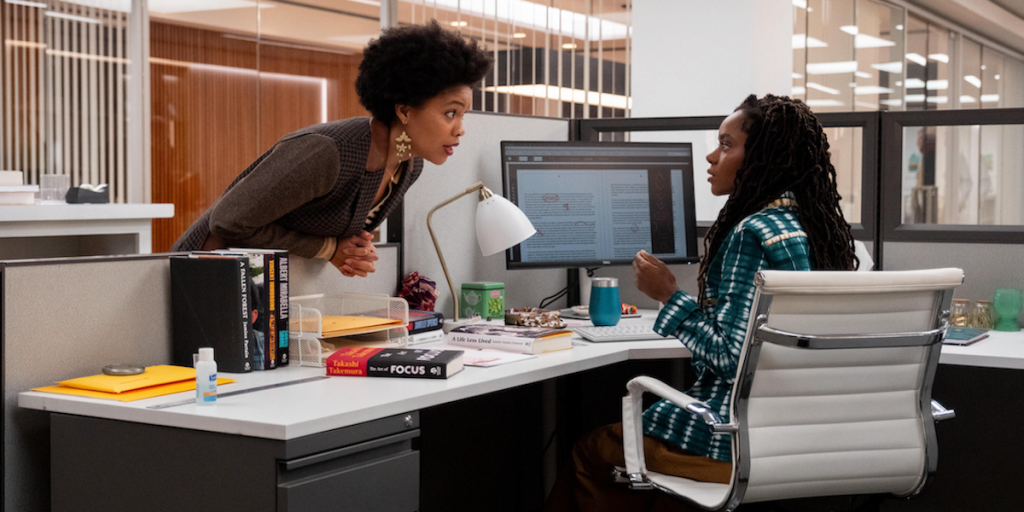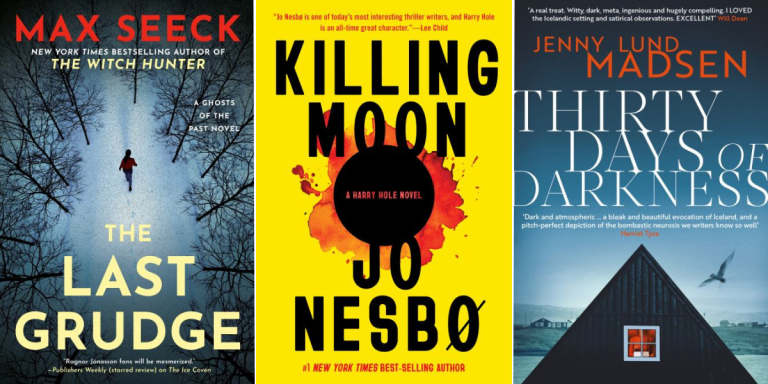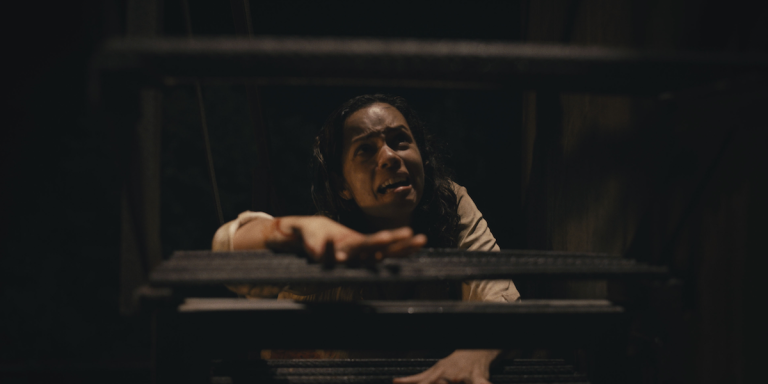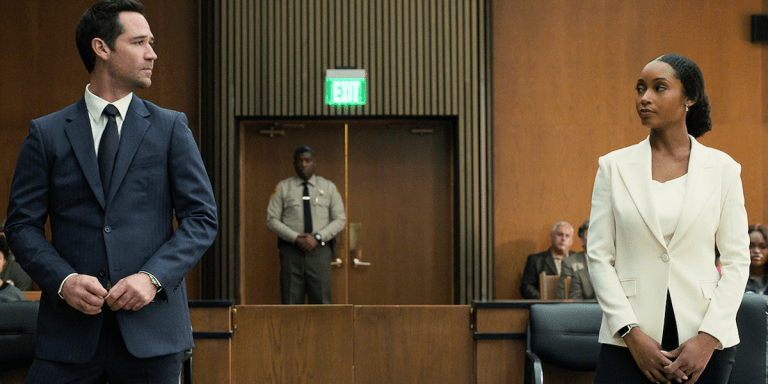Zakiya Dalila Harris’ ‘The Other Black Girl’ Gets a Smart, Creepy Adaptation on Hulu

For certain stretches of the Hulu series The Other Black Girl, especially in the middle of the 10-episode first season, it could be mistaken for a workplace dramedy about a young Black woman struggling to find a place in a white-dominated corporate environment. Even when the thriller elements become more prominent, including detours into the supernatural, the show remains grounded in that real-world context, adapted from Zakiya Dalila Harris’ 2021 novel.
Harris co-created the show with actor and writer Rashida Jones, whose comedic sensibilities help add a satirical edge to the suspense. The first episode begins with a flashback to 1988, as a young Black woman runs from some kind of threat, experiencing what may be a supernatural presence or may be hallucinations as she rides the subway in New York City. After that ominous opening, though, The Other Black Girl shifts to something more mundane, as Wagner Books editorial assistant Nella Rogers (Sinclair Daniel) meets her new co-worker Hazel-May McCall (Ashleigh Murray).
At first, Nella is thrilled that she’s no longer the only Black person working at Wagner. She bonds with Hazel, opening up about all the frustrations and microaggressions she experiences on a daily basis. Yet almost immediately, Hazel seems to undermine her, in a potential confrontation with Wagner’s top author, Colin Franklin (Brian Baumgartner), over racist content in his latest novel. Is Hazel actually out to sabotage Nella? Or is Nella just being paranoid and giving in to societal pressures that pit successful Black women against each other?
For a long time, The Other Black Girl keeps that question open, as Nella navigates office politics around Hazel, as well as with her demanding boss Vera (Bellamy Young) and Wagner’s wealthy founder and editor-in-chief, Richard Wagner (Eric McCormack). It could be a slightly edgier version of a show like The Bold Type or Younger, except for the periodic glimpses of something more sinister from Hazel or Richard. Occasional flashbacks to Wagner’s early days, when the company’s first best-selling release was a coming-of-age novel by young Black author Diana Gordon, also hint at a more elaborate conspiracy.
Nella explicitly references Jordan Peele’s Get Out in a late-season episode, and The Other Black Girl has been compared to that influential film in its combination of horror and social commentary about the Black experience. As the older Diana Gordon (Garcelle Beauvais) returns to Wagner with poise and confidence, The Other Black Girl also draws on earlier influences like The Stepford Wives and Rosemary’s Baby.
The show’s portrayal of horrors connected to Black women’s appearance and assimilation in white corporate culture also recalls Justin Simien’s underrated 2020 horror comedy Bad Hair. Director Mariama Diallo, who helms multiple episodes, took on similar subject matter in her 2022 college-set film Master starring Regina Hall, but The Other Black Girl realizes those themes more effectively.
While Harris’ novel kept the thriller elements fairly confined, the TV series continually reminds the audience of more serious dangers to come, maintaining the suspense even as the central narrative is focused on everyday difficulties. Daniel and Murray deftly balance those two modes as the main characters, giving equal emotional weight to the characters’ personal lives and the larger struggle (both societal and supernatural) that they’re facing.
Young and McCormick capture the smarm of entitled, condescending corporate arts patrons, and Beauvais is stealthily menacing as a woman who may not be the pioneering ally that Nella thinks she is. If the narrative gets a bit unwieldy over the course of 10 episodes, the actors keep it on track, and by the end of the season, The Other Black Girl has introduced a subversive and haunting vision of a new kind of institutional racism.
Discover the Book
“Riveting, fearless, and vividly original” (Emily St. John Mandel, New York Times bestselling author), this instant New York Times bestseller explores the tension that unfurls when two young Black women meet against the starkly white backdrop of New York City book publishing.
Twenty-six-year-old editorial assistant Nella Rogers is tired of being the only Black employee at Wagner Books. Fed up with the isolation and microaggressions, she’s thrilled when Harlem-born and bred Hazel starts working in the cubicle beside hers. They’ve only just started comparing natural hair care regimens, though, when a string of uncomfortable events elevates Hazel to Office Darling, and Nella is left in the dust.
Then the notes begin to appear on Nella’s desk: LEAVE WAGNER. NOW.
It’s hard to believe Hazel is behind these hostile messages. But as Nella starts to spiral and obsess over the sinister forces at play, she soon realizes that there’s a lot more at stake than just her career. Having joined Wagner Books to honor the legacy of Burning Heart, a novel written and edited by two Black women, she had thought that this animosity was a relic of the past. Is Nella ready to take on the fight of a new generation?
“Poignant, daring, and darkly funny, The Other Black Girl will have you stressed and exhilarated in equal measure through the very last twist” (Vulture). The perfect read for anyone who has ever felt manipulated, threatened, or overlooked in the workplace.
By clicking 'Sign Up,' I acknowledge that I have read and agree to Hachette Book Group’s Privacy Policy and Terms of Use
What to Read Next
Josh Bell is a freelance writer and movie/TV critic based in Las Vegas. He’s the former film editor of Las Vegas Weekly and the former TV comedies guide for About.com. He has written about movies, TV, and pop culture for Vulture, Polygon, CBR, Inverse, Crooked Marquee, and more. With comedian Jason Harris, he co-hosts the podcast Awesome Movie Year.


